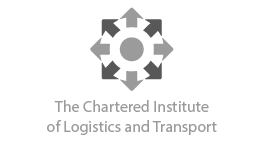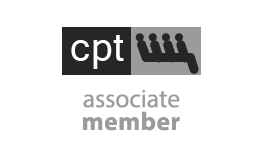
Fares & Ticketing Analysis
We have led the field in the monitoring and development of fares and ticketing strategies for commercial bus operators and local authorities.
We carry out numerous reviews of product and ticket sales to assist operators improve their business offer, patronage and levels of return.
Fares & Ticketing Analysis
ETM Analysis
Concessionary Fares Support
Multi-Operator Ticketing Schemes
Fares Elasticity and Modelling
Boarding Times
Fares & Ticketing Analysis
TAS has led the field in the monitoring and development of fares and ticketing strategies for commercial bus operators and local authorities.
We carry out numerous reviews of product and ticket sales to assist operators improve their business offer, patronage and levels of return. Our work includes:
- Assisting operators with fares and ticketing initiatives
- The introduction of new multi-operator ticketing schemes
- Complex analysis of fares elasticity
- Modelling the impact of fare changes on patronage and revenue
ETM Analysis
Analysing ETM (Electronic Ticket Machine) data as well as off-bus sales to identify sales totals, plotting ticket sale locations, looking into different ticket types and providing associated advice on route costing if needed.
TAS produced fares and ticketing strategies for one UK bus operator for three years running to increase the attractiveness of the service to users and improve operating efficiency. As a result of TAS’ recommendations, the operator opted for day rather than return ticketing and introduced a zonal fares system.
Concessionary Fares Support
TAS has amassed extensive knowledge of all aspects of concessionary bus fares, including:
- Scheme design, implementation and review
- day-to-day administration; advising and reimbursement rates;
- and successfully handling negotiations or formal appeals on both sides.
TAS also has experience of taxicard and voucher schemes, rail and air travel concessions.
TAS has played a prominent role in advocating the fair and sensible application of fare concessions. It has won more than 12 formal appeals and averted many more, taking pride in being able to mediate mutually acceptable settlements between bus operators and Travel Concession Authorities.
TAS also helped West Sussex County Council implement a young person’s scheme in 2007 – from feasibility to administration.
Multi-Operator Ticketing Schemes
TAS has worked in partnership with local authorities and bus operators on the development of a number of multi-operator ticketing schemes around the country.
We have developed a thorough understanding of the Competition Act 1998 and the Transport Act 2000, which between them govern ticketing schemes, dervied from working with the Office of Fair Trading (OFT) and Confederation of Passenger Transport (CPT) on the guidance produced by the OFT.
We have successfully completed integrated ticketing projects for Cambridgeshire, Oxfordshire and Surrey County Councils.
Fares Elasticity and Modelling
TAS has explored the intricacies of fares elasticity and modelling of price effects extensively as well as monitoring and evaluating passenger responses to fare changes.
We have undertaken a national and comparative surveys of fare levels and trends in UK bus operations at a national level since 2009 via our National Fares Survey and we have advised bus operators all over the country on future fares policy, based on detailed modelling of the impact of radical fares restructuring, including zonal and flat fares, day and weekly tickets.
TAS has played a prominent role in advocating the fair and sensible application of fare concessions. It has won more than 12 formal appeals and averted many more, taking pride in being able to mediate mutually acceptable settlements between bus operators and Travel Concession Authorities.
TAS also helped West Sussex County Council implement a young person’s scheme in 2007 – from feasibility to administration.
Boarding Times
Faster boarding times and lower transaction times improve both the efficiency of services and their appeal to customers.
We can use analysis of electronic ticket machine data to demonstrate the variations in boarding times for passengers with different ticket types and fare values.
This analysis can be used to optimise fare and ticketing products to keep transaction times to a minimum and to ensure that changes to fares avoid negative unintended impacts such as reduced reliability.
Key Contacts

John Godfrey
Principal Consultant



